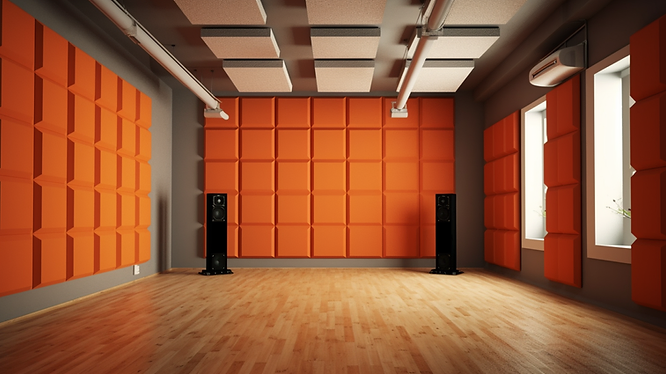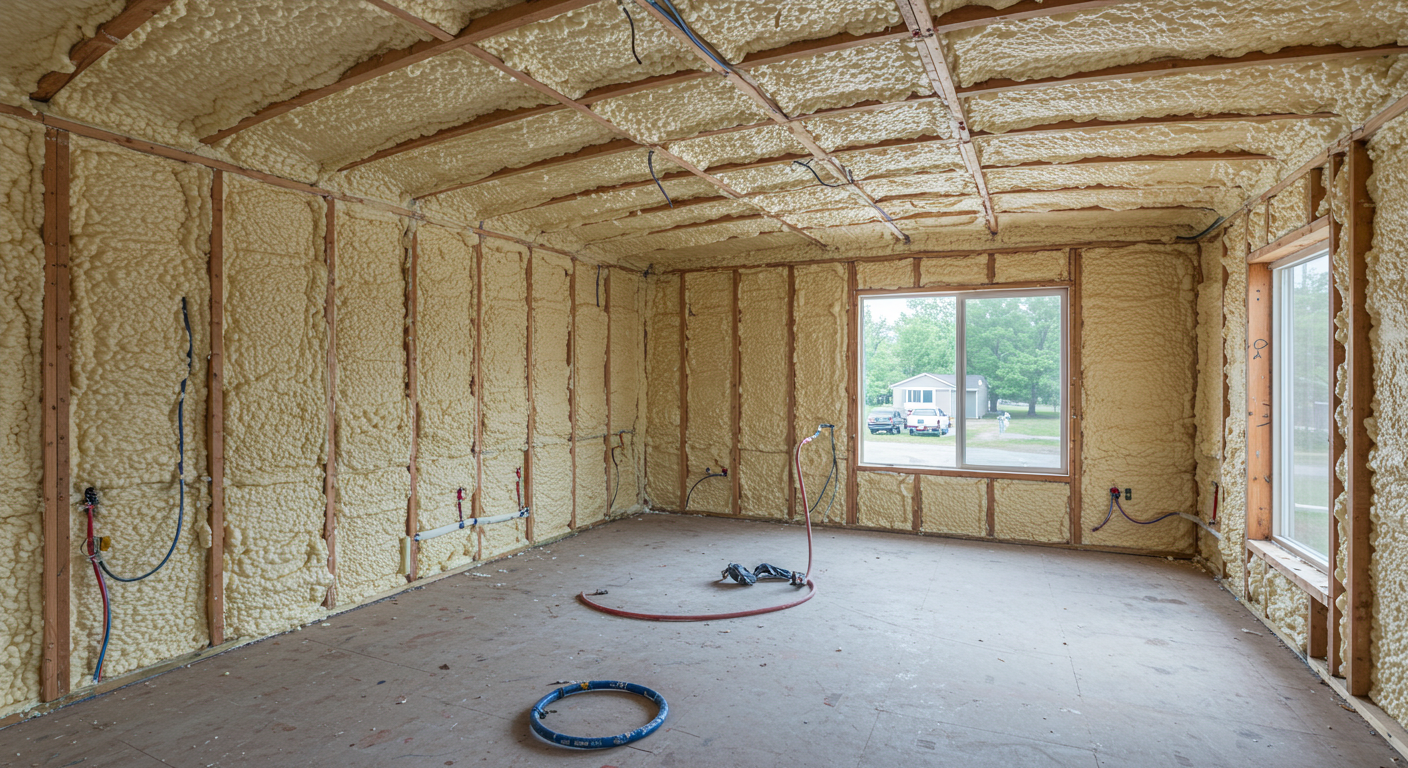Establishing a serene and noise-free ambiance in your residence or office is essential in a world of constant noise pollution. Soundproofing insulation can be a game-changer if you live near a busy road, have noisy neighbors, or wish to enjoy peace. In this blog, we’ll explore the effectiveness of soundproofing insulation and answer the question: Does soundproofing insulation work?
The Importance of Soundproofing Insulation
Soundproofing insulation, often called “soundproof insulation” or “acoustic insulation,” is designed to reduce or block sound transmission from one area to another. It’s used in various spaces, including residential homes, commercial buildings, and industrial settings, to enhance comfort and privacy.
If you’ve ever questioned the value of investing in soundproofing insulation, the resounding answer is, “Absolutely.” Here’s why:
Enhanced Comfort: Soundproofing insulation significantly reduces external noise intrusion, providing a quieter and more comfortable environment. You can enjoy a peaceful night’s sleep, focus better at work, and maintain a more relaxed atmosphere at home.
Privacy: In shared living spaces, privacy is essential. Soundproofing insulation helps maintain personal privacy by minimizing sound transmission between rooms, preventing eavesdropping or disturbances from adjacent areas.
Energy Efficiency: Some soundproofing insulation materials also have insulating properties that can help improve your energy efficiency. You can save on heating and cooling costs by reducing sound and heat transfer.
Increased Property Value: Installing soundproofing insulation can enhance your property’s value. Prospective buyers or tenants often look for homes or buildings with soundproofing features, as they add significant appeal.
Now, let’s delve into how soundproofing insulation works and the various materials and methods available.
How Soundproofing Insulation Works
Soundproofing insulation reduces the transmission of sound waves through walls, ceilings, and floors. It accomplishes this by absorbing, reflecting, or damping helpful energy. Here are some standard methods and materials used for soundproofing insulation;
Mass-Loaded Vinyl (MLV): MLV is a dense, flexible material that can be added to walls or ceilings to increase mass and block sound. It’s particularly effective at reducing low-frequency noise.
Acoustic Panels: Acoustic panels are crafted for sound absorption reflections, making them an excellent choice for reducing echo and improving sound quality. They are commonly used in home theaters and recording studios.
Insulation Materials: Certain insulation materials, like fiberglass and mineral wool, also provide soundproofing benefits in addition to their thermal insulation properties. They can be installed between wall studs and ceilings to reduce sound transmission.
Decoupling: It involves creating air gaps between walls or ceilings to prevent sound vibrations from traveling through the building’s structure. Resilient channels or sound isolation clips are commonly used for this purpose.
Soundproof Drywall: Specialized soundproof drywall is designed to enhance noise reduction. It’s more massive and has damping properties, making it an excellent option for soundproofing walls.
Sealing and Caulking: Sound can easily seep through gaps and cracks in walls and ceilings. Sealing these openings with acoustic caulk or sealant can significantly improve soundproofing.
Also Read: Is Soundproof Insulation Expensive
Does Soundproofing Insulation Work?
The effectiveness of soundproofing insulation largely depends on several factors;
Quality of Materials: The type and quality of soundproofing materials used significantly determine the insulation’s effectiveness. High-density materials and specially designed products tend to yield better results.
Proper Installation: Correct installation is crucial for soundproofing to work optimally. Make sure the insulation is installed accurately, with no gaps or overlaps.
Room Design: The overall design of the room, including the placement of doors, windows, and structural elements, can impact sound transmission. Proper room design can complement the effectiveness of soundproofing insulation.
Noise Source: The nature and intensity of the noise you’re trying to block will also influence the insulation’s effectiveness. Some sounds are more challenging to stop than others, and a combination of soundproofing methods may be necessary.
Budget: How you can implement soundproofing measures depends on your budget. While there are cost-effective options, some high-end materials and techniques provide superior results.
Conclusion
Soundproofing insulation is a highly effective solution for reducing noise transmission and creating a peaceful environment when properly selected and installed. Soundproofing insulation offers a versatile and practical solution whether you’re looking to eliminate external disturbances, enhance privacy, or improve energy efficiency. Ultimately, “Does soundproofing insulation really work?” can be answered with a resounding “yes.” So, if you’re seeking a quieter and more comfortable living or working space, consider soundproofing insulation as your solution to a more peaceful world.
Say goodbye to disturbances. Get started with our noise-canceling insulation services and enjoy a tranquil environment now! Contact Foam Masters USA at 718-865-9647.







